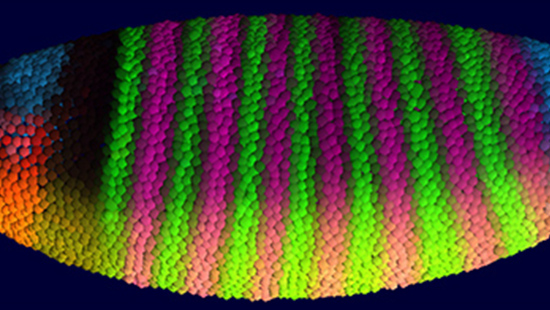Research / Research AreasBiological Systems
The biochemical and biophysical parameters that determine the behavior of biological systems aren't universal—they differ vastly during the course of development and across organisms—and yet there are qualitative features that biological systems share with each other.
How do we describe these systems if not in terms of quantitative measurements of parameters and piecemeal construction of high-dimensional models for individual phenomena of interest? While advances in microscopy, genetic engineering, and single-cell sequencing provides an abundance of data, tailor-made models that "fit the data" are rarely transferable to other systems and fail to provide an explanation for the unity that we observe in the biological world. This is the challenge facing modern quantitative biology and the study of truly complex systems.
While excited by the wealth of phenomena in biology, we admire the economy with which applied mathematicians and physical scientists solve problems. At the heart of this is recognizing the simplest level of description for the phenomena of interest, while ignoring more microscopic details—phenomenology. The hope being that the same phenomenological description is able to quantitatively describe the behavior of disparate biological phenomena, thereby providing some degree of unity in our understanding.

